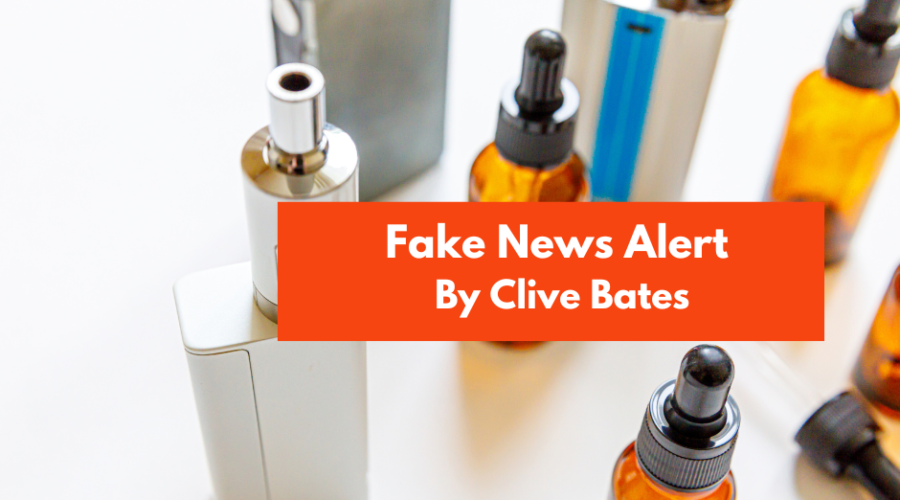The Counterfactual: What role do ENDS play in smoking cessation?
Republished from Clivebates.com with the consent of the author
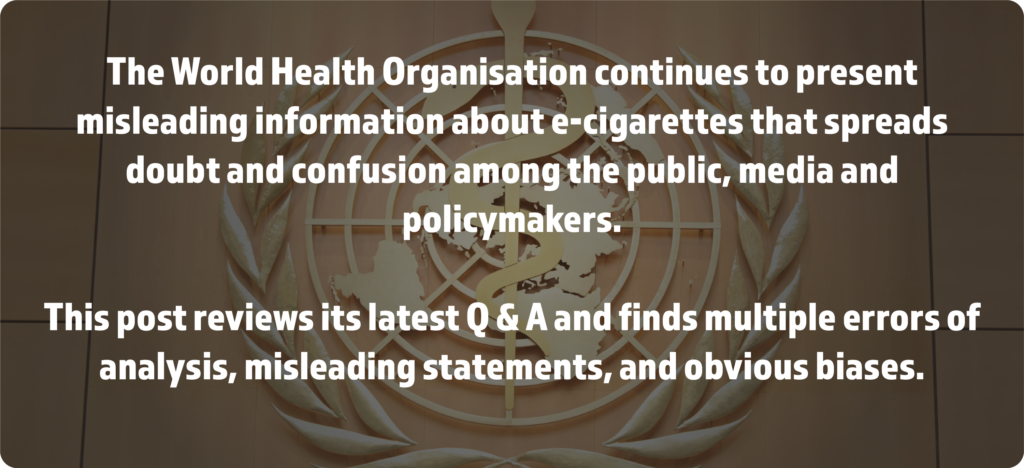
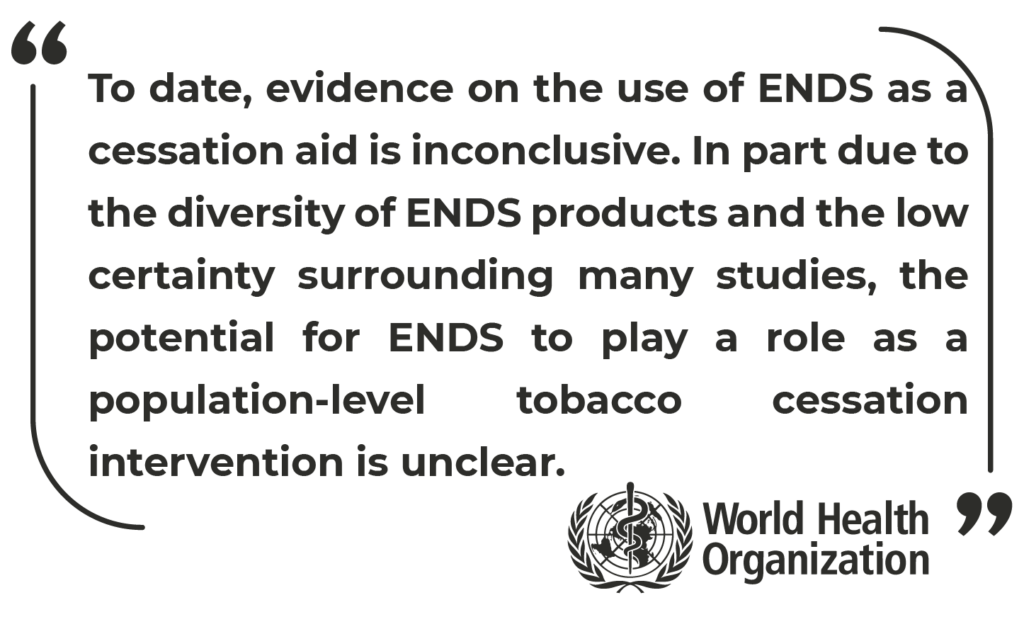
The evidence actually supports significant effects on smoking cessation. The evidence is only unclear if you insist on looking away from it or imposing a far higher standard of certainty than on any other tobacco control measure. All evidence is unclear to some degree, but evidence from multiple sources triangulates to strongly suggest that vaping assists with smoking cessation and that e-cigarettes function as economic substitutes for cigarettes. This is exactly what we should expect.
Professor Kenneth Warner of the University of Michigan summarises the state of the evidence as follows:
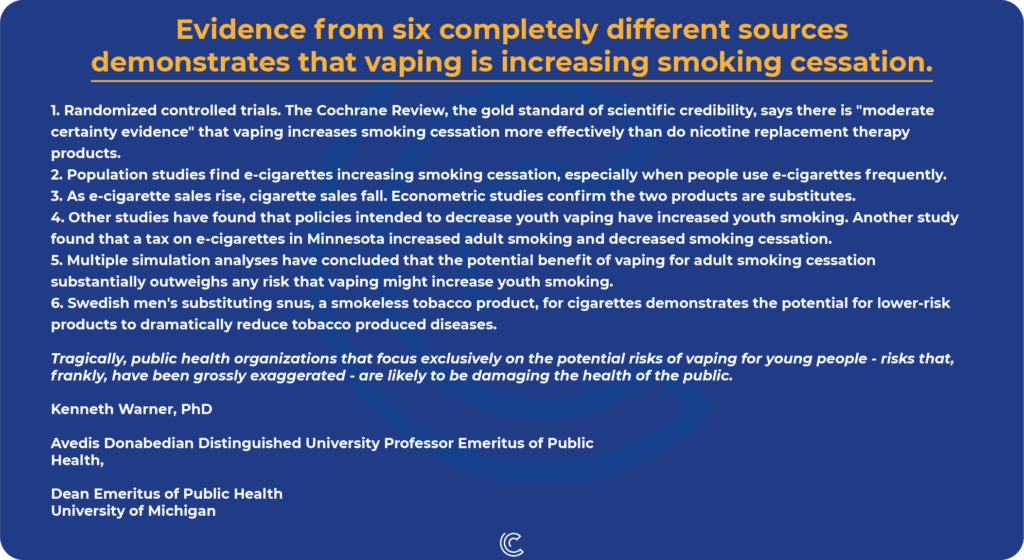
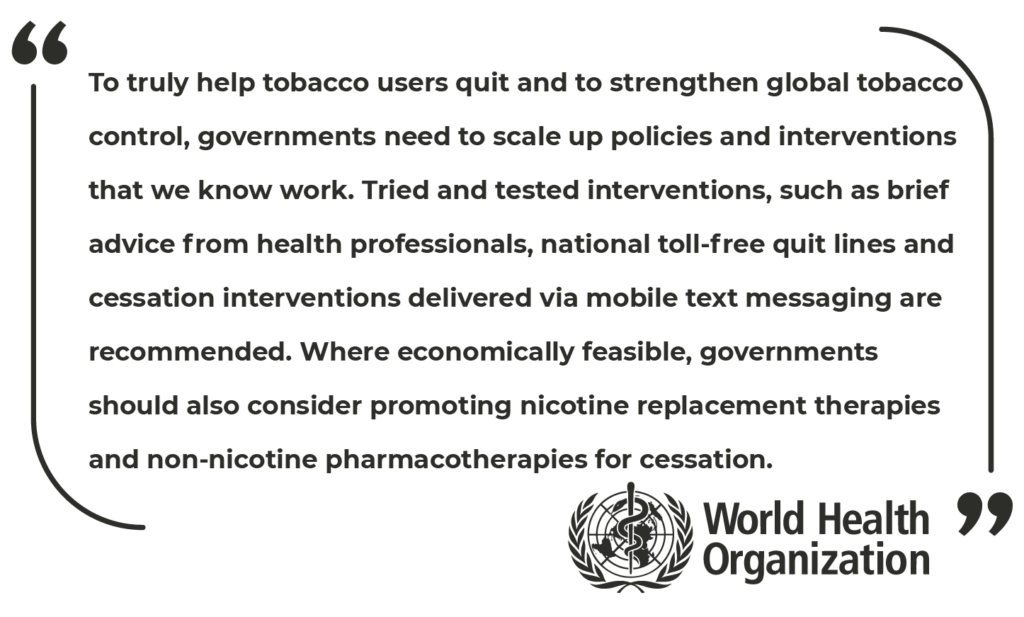
Smoking cessation and harm reduction are compatible, not opposing strategies. There is nothing wrong with some of these smoking cessation measures, but there is much less evidence than WHO implies that they work at scale in real-world settings or reach the smokers who are at the greatest risk (those who don’t want to quit). But they are not alternatives to harm reduction approaches and they work in a different way. E-cigarettes are not primarily a smoking cessation treatment (though they can be that as well) but work as a much safer consumer alternative to cigarettes for people who want to use nicotine.
WHO overstates its own role in addressing smoking. Nor are they the same as the measures promoted by WHO at last year’s World No Tobacco Day – Commit to Quit – when WHO launched a year-long campaign to help 100 million people quit tobacco. A year on we have heard little of this and no progress report. A year later, these claims look like empty hubris.
Written by Clive Bates
